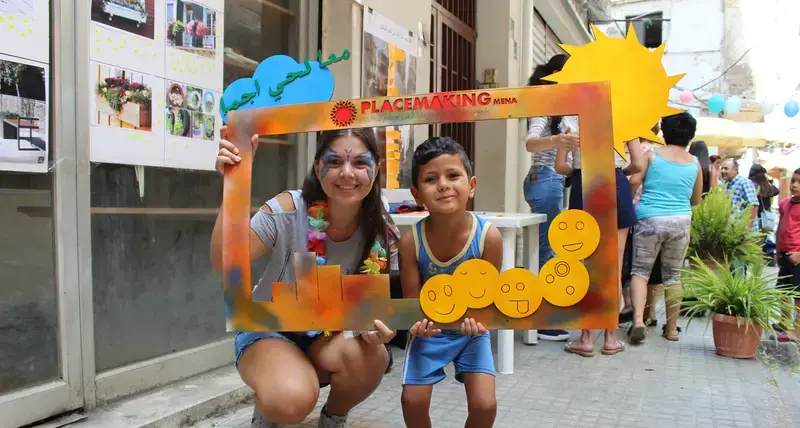Through funding by the Ministry of Foreign Affairs of the Republic of Poland and the Embassy of Japan in Lebanon, UN-Habitat has worked to improve basic services and environmental conditions of host and refugee populations residing in sub-neighbourhood Maraach in the Municipality of Bourj Hammoud.
This project is multisectoral, community-led, and evidence-based through UN-Habitat’s profiling work, to ensure it is responding to urgent needs of the communities. The profiling work showed that the residents in Bourj Hammoud suffer from lack of access to basic services and safe public spaces, weak socio-economic situation, deteriorating built environment, and lack of safety and security conditions. This urban upgrading project has worked to enhance the environmental conditions in the sub-neighbourhood, improve access to basic services, and enhance social stability, through the active engagement and skills development of the municipality and community members. The project has also addressed damages – windows and doors at household level and public infrastructure at communal level – caused by the Beirut Port explosion that took place on 4 August 2020, and impacted Maraach neighbourhood.
The project has 3 main components:
- Sub-neighbourhood rehabilitation:
Rehabilitation of 90 buildings and 5 alleyways
- Capacity building and awareness-raising:
Cash-for-work activities for 97 community members:
- Rehabilitation of hazardous tangled electrical wires of public and private service providers (internet, satellite and generator) in 5 alleyways
- Training and awareness sessions on proper hygiene, solid waste management, reduction and reuse. a) sewing reusable 4,500 face masks and 720 cotton bags; b) conducting door-to-door awareness campaign.
- Rehabilitation of the Lebanese Civil Defense (LCD) Centre including construction and renovation works.
- “Greening” streets – mainly by installing benches and trees in the streets - and establishing 4 roof gardens and 95 flower-pots on the balconies of 39 households.
- Supporting the painting of the urban infrastructure in Bourj Hammoud, that contributed to income-generating opportunities for Maraach’s residents
- Delivery of custom-made Rapid Intervention Vehicle for the Lebanese Civil Defense (LCD) Centre in Bourj Hammoud, and in addition to fire prevention trainings to 54 community members and distribution of firefighting equipment – mainly 53 fire extinguishers and 53 fire blankets.
- Renewable energy:
Solar panels have been installed on the roof of a community centre – which allows the centre to be operational and sustainable and lights up all the alleyways of intervention – promoting safety and security, as well as allowing for business continuity.
